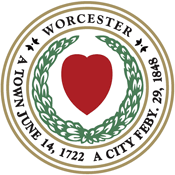Energy and Cost Saving Tips!
Learn More About Your Home!
ENERGY STAR® Home Advisor helps to improve your home's energy efficiency while adding comfort and value. This tool allows you to create your home's energy profile, get custom recommendations to improve your home's efficiency, build your list of improvements and track your progress.
$$$ Energy Efficiency Rebates and Incentives $$$
Mass Save®'s Rebates and Incentives (for Massachusetts residents and businesses).
National Grid - Energy Efficiency Incentives and Rebates.
GasNetworks Energy Efficiency Program provides significant rebates for space and water heating equipment (such as boilers and furnaces) that is fueled by natural gas. Residents are referred to this Program from Mass Save® website as well.
- Learn how higher efficiency ENERGY STAR® labeled appliances can save you money on your electric or gas bill.
- Use the Rebate Finder to help you locate special offers/rebates/credits based on your location and utility provider.
DSIRE - Database of State Incentives for Renewables & Efficiency is a comprehensive source of information (organized by states) on incentives and policies that support renewable energy and energy efficiency in the United States. Established in 1995, DSIRE is operated by the N.C. Clean Energy Technology Center at N.C. State University and is funded by the U.S. Department of Energy.
Simple Steps to Reduce Your Energy Bills
Read about Energy Savings Tips (a National Grid resource)
Learn about choosing the right lighting (a Mass Save® resource) from a great visual guide with current and relevant information about choosing the right lighting for your home.
Heating/Cooling Energy
- Install a programmable thermostat.
- Set thermostats to 68°F in winter when you're home, and down to 55°F when you go to bed or when you're away.
- Turn down water heater thermostat to lower temperature.
- Close heating/cooling vents in unused rooms.
- Clean or change the air filter on your warm-air heating system during winter and on air conditioning units in the summer.
- Install an R-7 or R-11 water heater wrap for your electric or gas water heater.
Electricity
- Turn off lights when leaving a room.
- Turn off your computer, printer, TV, and other electronics when you're not using them; consider using power strips for convenience.
- Install a compact fluorescent light (CFL) or LED bulb in the fixtures you use the most.
- Use energy-saving settings on washing machines, clothes dryers, dishwashers and refrigerators.
- Clean your refrigerator's condenser coils once a year.
Insulation
- Insulate the first three feet of hot and inlet cold water pipes.
- In the attic and basement, plug the air leaks, and replace and re-putty broken window panes.
Water
- Repair leaky faucets and toilets.
- Install a water-saving 2.5-gallon-per-minute showerhead.
- Install water-efficient faucet heads for your kitchen and bathroom sinks.
- Tips for Saving Water Indoors and Outdoors (a MassDEP link)
Gasoline Use
- Consider buying a car that gets better gas mileage when you choose your next car. This can save you a great deal of money over time.
- Drive less. Combine errands, carpool and plot out your route beforehand to avoid backtracking whenever possible.
- Always keep your car tuned up and in good repair. Keep your tires properly inflated. Check your tire pressure frequently, especially if your tires have a tendency to lose pressure.
- Remove snow tires after the winter season, since they require more fuel.
- Don't carry unnecessary items in your car. Every 250 extra pounds eats up an extra mile-per-gallon; another good reason to clean out the trunk.
- Don't let your car idle. If you're going to be standing for more than a minute, running your engine wastes more gas than restarting the engine. Also, today's vehicles only need to warm up for a few seconds before driving.
- Buy gas when it's cooler outside (like the early morning or at night) to reduce gas evaporation. Don't over-fill your gas tank. You don't want the gas to slosh out or evaporate.
- Develop good driving habits. For example, accelerate gently, maintain a steady speed rather than speeding up and slowing down and avoid slamming on the brakes.
- Keep your windows closed when driving on the highway. Open windows can reduce your gas mileage by as much as 10%. In stop-and-go traffic, open the windows and turn off the air conditioning to save money.
- Rent fuel-efficient cars when you travel.

